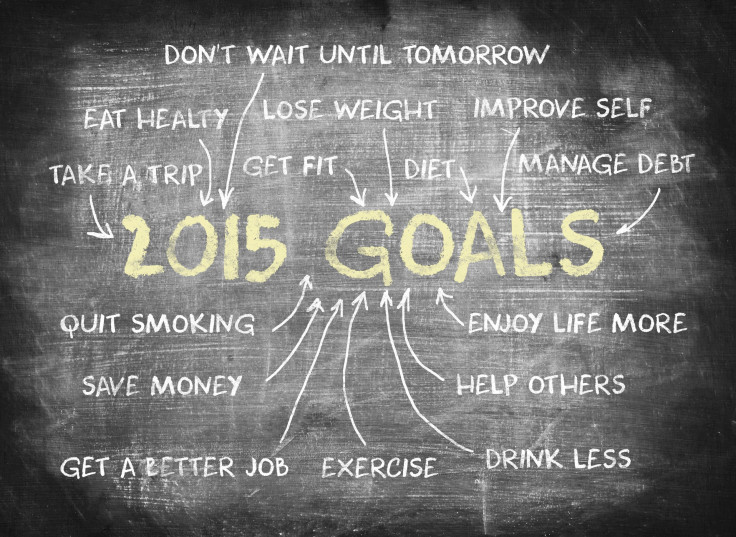New Year's Resolutions Are Doomed To Fail: Why Your Healthier Lifestyle Should Start Today

New Year’s Day is a sacred self-proclaimed starting date for healthier habits for millions of Americans every year. The top New Year’s resolutions for these Americans are weight loss; exercise, quitting smoking, better money management, and debt reduction. And it’s no coincidence the first three are health-related; they’re promises of becoming a better person in a country suffering from a medically and financially debilitating obesity epidemic. New Years Resolutions tend to fail, though. By looking into their history, and research on the brain, we can uncover the reasons why — and therefore, how to do them better.
A History Of New Year's Traditions
The New Year’s resolution is an ancient practice based on oaths and promises. More than 4,000 years ago, Babylonians celebrated the New Year for 12 straight days in March, when the spring harvest arrived. This was also when they reaffirmed their loyalty to the old king (or crowned a new king), renewed promises with the gods, and gave worship and thanks.
Fast forward hundreds of years, and the ancient Romans were still practicing similar traditions in March. Their law-abiding judges were either sworn into office or had their positions reaffirmed in front of the Roman Senate. Once Rome became an empire in 27 B.C., New Year’s Day was designated as a day for soldiers to swear an oath of loyalty. Romans practiced this for decades, but as their society gradually became less focused on war, a new celebratory tradition took over. Ceremonies with oaths and temple sacrifices were scheduled for the first half of New Year’s Day, while the second half became a time for celebration and gifting sweets, such as honey and pears, to signify a “sweet new year.”
Over the centuries, society has traded in oaths for resolutions and midnight kisses, and sweets for copious amounts of alcohol and toasts. Today, New Year’s has become a secular tradition highly focused on self-improvement. Magazines, gyms, and celebrities promise improvements for the New Year through their “secret” weight-loss tips, fool-proof diets, and dating do’s and don’ts. A 2013 poll found most people don’t even make resolutions for the New Year anymore, and only half of those who do actually keep their self-proclaimed promises. Where do these resolutions fail? And more importantly, why?
January First Failures
Researchers have studied the nationwide phenomenon, and found the first two weeks usually go as planned. Then, people start making mistakes because they believe they’ve done so well — by having one too many cheat days after losing weight, for example. These treats open up a door to making more mistakes, and by February most people are already on the road to failure.
Resolutions are a form of “cultural procrastination” in the tiring journey to reinvent oneself. But when people invest all of their hopes, aspirations, and motivations into a single day, they find themselves in a position of debilitating defeat, which often sets them back further than when they first started. This is where the intrinsic flaw of New Year’s resolutions lies — within the goal and that person’s fleeting moment of inspiration.
That fleeting inspiration isn’t actually substantive. Making a promise for a positive health outcome misaligns with these peoples’ perception of actually achieving that goal, and they expect results after only a couple of weeks of sacrifice like dieting and exercise. When they don’t achieve their goal within that time frame, or with the success they expected, not only does the promise not work but it can also damage their self-esteem.
Changing behaviors won’t lead to success unless you change the very wiring within your brain. Brain scans have revealed that habitual behaviors are created by thinking in patterns, which form new neural pathways and memories inside the brain, according to Psychology Today. After 18 to 21 days of repeated behavior, these new pathways become the default in your brain, and help when you’re faced with a choice: fruit salad or cheesecake for dessert? The trick is to make it past this time, stay persistent all year long, and break barriers into the years to come. The secret is you don’t need to start on the first of January.

Make Resolutions Without New Year’s
Take Charisa McKinney from Long Island, N.Y., for example. At 23 years old, she made the decision earlier this year to work toward a healthier lifestyle without making a New Year’s resolution.
“There is so much pressure placed upon us to make those New Year’s Resolutions that I think it scares people,” she told Medical Daily. “What does that day have anything to do with you? Every single day is a new opportunity to reinvent yourself. Many people are denied that. Do you only show or tell the people you love that you care for them on Valentine’s Day? Do you only eat a delicious meal on Thanksgiving? So why are we limited to one day a year to start over — or one day a week? Monday is the most powerful day in the dieter’s world.”
McKinney started on a Saturday in late January 2014. She threw out her scale and didn’t weigh herself throughout the entire process. She focused on herself, celebrated milestones, and most importantly, made small attainable goals, finding they were cumulative keys to her broader goal. She admitted to breakdowns and failures, but only allowed them to become brief missteps on her journey instead of defeats. After McKinney’s gym named her member of the month for December, her story of determination and dedication spread throughout the community.
“When I began my regimen, I found myself fantasizing about the future, envisioning what I would look like and wishing that I could fast-forward the process,” McKinney said. She only grew frustrated from these thoughts, especially since she hadn’t lost any weight after her first two weeks. “Bottom line: take it one day at a time. Stop thinking so much about the future — it doesn’t exist. Repeating small accomplishments ends up making the big ones.”
McKinney quit smoking before she began working on her weight-loss and exercise goals — it was a triple threat, which she overcame with incredible tenacity. But then, she took it another step, and it wasn’t just the cigarettes, junk food, and the sedentary lifestyle she gave up but also alcohol. At an age when bar hopping, celebratory shots, and peer-pressured partying is in full swing, she chose her health.
McKinney was inspired to begin this lifestyle overhaul after a hangover one morning that made her feel “poisoned.” She realized it was a combination of everything she was putting into her body. “Mind you, even I didn’t believe myself initially,” she said. But she was also only in the beginning stages of rewiring her brain into a healthier mindset.
“It started out that I wanted a physical transformation, and it laid the foundation for a mental, emotional, and spiritual transformation,” McKinney said. “I believed in something greater than myself the entire time, I believed in my dream, I believed I had the potential until I proved to myself that I did. I gained strength in every meal, every workout, and every run. When I thought about where I’d be at this point, I never thought I’d still be doing this. But this time was different. Something clicked.”
Her goals for 2015 won’t start on the first of January because they have already begun. She wants to keep losing weight, start a fitness and healthy eating blog, run a half-marathon, and “maybe get some abs, maybe not.” Once you acquire the right mindset, you will realize for possibly the first time in your life that our bodies are machines capable of almost anything. Don’t wait until New Year’s Day to hope a healthier life will click into place.



























